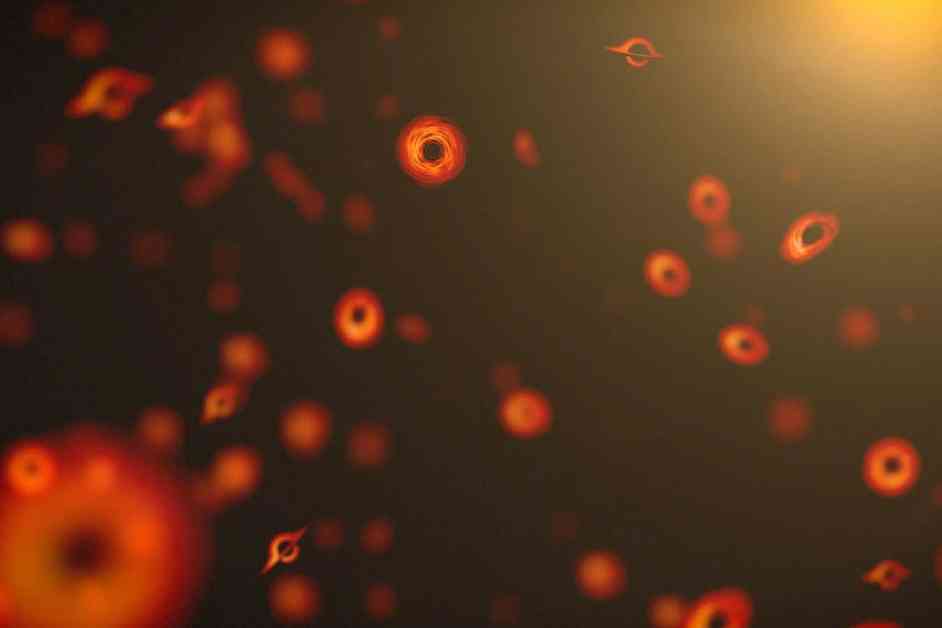The Behavior of Tiny Black Holes in Various Objects
Dead Planets Society, a podcast that delves into unconventional ideas about manipulating the universe, recently explored the behavior of primordial black holes placed inside different objects. These tiny black holes, theorized to have existed in the early universe, could potentially solve significant cosmological mysteries and present intriguing possibilities for experimentation.
Hosts Chelsea Whyte and Leah Crane, along with black hole astronomer Allison Kirkpatrick from the University of Kansas, discussed the potential consequences of placing a primordial black hole inside objects such as the sun, Earth, and even the human body. The outcomes of such scenarios were found to be far from straightforward.
When considering a minuscule black hole placed within a star or planet, the effects were predicted to be minimal, with the black hole either passing through or remaining at the center, depending on the object’s mass. However, as the black hole’s size increased to approximately the mass of Earth but the size of a grape, the implications became more significant. In this scenario, the black hole could drastically shorten the sun’s lifespan or consume a planet from within.
Interestingly, black holes within this size range could potentially be utilized to restructure the universe through their gravitational influence. For instance, a tiny black hole positioned near the moon’s surface could counteract its gravitational pull towards Earth, preventing its gradual drift away.
Regarding the impact on humans, Kirkpatrick mentioned that standing a few meters away from a small black hole would likely be safe. However, as proximity increases, the gravitational forces become more pronounced, posing a risk of bodily harm. In the event that a black hole were to be teleported inside a person’s body, the consequences would be catastrophic.
Kirkpatrick strongly advised against placing a primordial black hole inside a human body due to the immediate and severe damage it would cause. The American Medical Association refrained from commenting on the potential effects of a black hole on the human body.
Overall, the exploration of tiny black holes and their interactions with various objects opens up a realm of possibilities for understanding the cosmos and its intricate dynamics. While the consequences of such experiments may be perilous, they offer valuable insights into the behavior of these enigmatic cosmic entities. The study of black holes continues to intrigue and challenge scientists, pushing the boundaries of our knowledge of the universe’s mysteries.






